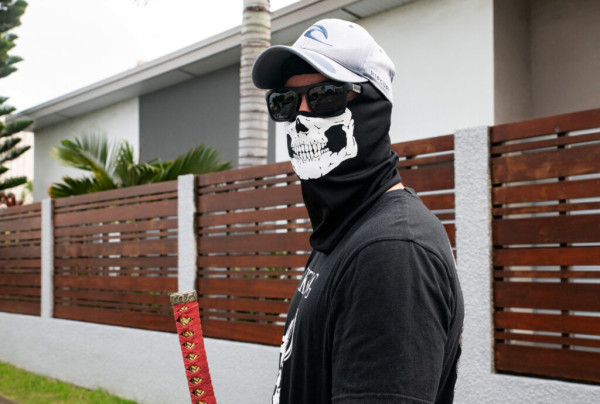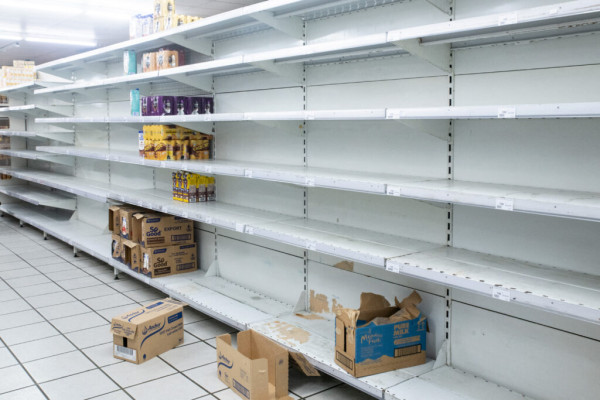Nickel, guns and foreign powers: How France’s New Caledonia reached the brink of ‘civil war’
PARIS — Nickel-rich New Caledonia could have been France’s Eldorado. Instead, it has once again turned into a security time bomb.
Ongoing violent protests in the French overseas territory in the South Pacific, which have already led to the death of five people around the Caledonian capital of Nouméa, have put the French government on high alert.
President Emmanuel Macron canceled several official events to hold emergency meetings, and declared a state of emergency giving the executive branch more powers to keep the situation under control.
“The situation remains very tense,” French Prime Minister Gabriel Attal warned Thursday following a new emergency meeting, after the local representative for the French state said a "civil war" was imminent.
Protests against a proposed reform of the territory’s electoral body — which separatists say would weaken the representation of the indigenous Kanak population — have been fueled by deep economic turmoil on the remote tropical archipelago. The French government has placed some of the blame on foreign powers, mainly Azerbaijan, who have formed ties with the separatists. But political tensions combined with economic misery is a more likely explanation.
The prevalence of firearms in New Caledonia has made the situation even more critical: According to local media, the territory contains nearly 64,000 guns — one for every four inhabitants.
New Caledonia’s wealth derives largely from its struggling mining industry. With almost 30 percent of the world’s reserves of nickel — a material essential in making stainless steel as well as batteries for use in electric vehicles — New Caledonia should been away to the races, with Europe scrambling to catch China in the rush to secure critical raw materials.
But things haven't worked out that way, with nickel production falling off a cliff and foreign investors leaving the archipelago. The sector is suffering from export restrictions by New Caledonia's authorities as well as high energy costs, making nickel significantly more expensive, and less profitable, to produce compared to in Indonesia and other Asian rivals.
“We are in a cataclysmic situation,” Philippe Gomes, the anti-independence former president of New Caledonia's government, told POLITICO.
Gomes stressed that the economic “disaster” the archipelago is suffering is one of the main causes of the ongoing crisis. “The nickel industry is in a total burnout,” he said.
Post-colonial tensions
Violent protests erupted after French lawmakers backed a proposed constitutional reform on Tuesday that would increase the number of non-indigenous citizens allowed to vote in elections to New Caledonia's congress, the local legislature.

Such voting is reserved to citizens who settled in the archipelago before 1998 — when the French government launched a self-determination process in New Caledonia — or their descendants.
The constitutional reform would allow any French citizen who has lived in New Caledonia for more than 10 years to vote.
Pro-independence forces have accused the French government of seeking to weaken the influence of New Caledonia’s indigenous population, the Kanaks, while proponents of the switch have called it a democratic necessity.
“The proposed reopening of the electoral body is nothing more than a return to the strategy of settler-colonialism,” Robert Xowie, a pro-independence Kanak senator, told Interior Minister Gérald Darmanin during a March question period in the Senate, which has both advisory and deliberative roles.
In the 1980’s New Caledonia was rocked by violence including assassinations and kidnappings, leading to dozens of deaths.
Three-way agreements reached between separatists, loyalists and the French government eventually recognized Kanaks as New Caledonia’s indigenous population and launched a process toward self-determination.

Macron asked pro- and anti-independence representatives to join him in a video call on Thursday, but the meeting was cancelled with the French presidency conceding that the two sides "don't want to talk to each other,” AFP reported.
For Gomes, the state must adopt an approach centered on “dialogue, consensus and peace” to prevent “a simmering civil war” from turning “into a full-blown civil war.”
According to the 2019 census, 41.2 percent of New Caledonia’s population identifies as Kanak and 24.1 percent as European, with the former facing significant socio-economic hardships, including lower wages and higher poverty rates.
Nickel spat
Despite French subsidies to the sector worth hundreds of millions of euros, the nickel industry continues to collapse, with production falling 32 percent in the first quarter from the same period last year. French authorities warned in 2023 that New Caledonia’s three main nickel processing factories could soon shut down, raising the number of unemployed on the island by 50 percent.
As protests heat up, that warning is being borne out as major investors, such as Switzerland's Glencore and France's Euramet, are either pulling out or refusing to invest further.
The government came up with a new plan last year to rescue the sector via up to €200 million in subsidies to reduce energy prices.

Instead of calming tensions, however, the “nickel pact” drew criticism from the New Caledonian independence movement, which deplored it as a “colonial pact” that would give Paris too much power to the detriment of local authorities. After months of negotiations, the pact is still frozen as New Caledonian representatives block its ratification.
While Paris tries to rescue one of its most remote outposts, some local representatives continue to flirt with foreign powers. For years, China has tried to increase its footprint in the archipelago by investing in the nickel industry. Azerbaijan, meanwhile, has repeatedly accused France of neo-colonialism and even founded an alliance uniting 14 political movements across the former French empire in the name of decolonization.
On Thursday, French Interior Minister Gérald Darmanin denounced what he called foreign interference, accusing Azerbaijan of fomenting ongoing riots; Attal announced that another 1,000 security forces will be sent to the archipelago.